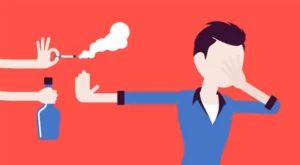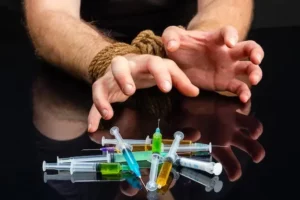Addiction is a complex disorder that can have a devastating impact on individuals and families. While there are many different approaches to addiction treatment, dialectical behavior therapy (DBT) has emerged as one of the most effective therapies available. In this blog post, we will discuss how DBT works and how it can help people struggling with addiction.
Contents
- 1 What Is Dialectical Behavior Therapy (DBT)?
- 2 How Does DBT Therapy Work for Addiction?
- 3 Techniques Used During DBT for Overcoming Addiction: Core Models
- 4 Is DBT Effective? Can I Really Overcome Addiction?
- 5 Benefits of DBT for Addiction
- 6 How to Get Started with DBT for Addiction?
- 7 What Kind Of Addictions Are Treatable With DBT?
- 8 Conclusion
What Is Dialectical Behavior Therapy (DBT)?
 DBT isn’t just your average therapy—it’s a game-changer. Developed by Marsha Linehan, this therapeutic approach is a type of cognitive-behavioral therapy (CBT) which is all about helping people manage emotions and change behavior. It’s like having a personal coach for your mind and heart, guiding you towards healthier coping strategies and improved relationships.
DBT isn’t just your average therapy—it’s a game-changer. Developed by Marsha Linehan, this therapeutic approach is a type of cognitive-behavioral therapy (CBT) which is all about helping people manage emotions and change behavior. It’s like having a personal coach for your mind and heart, guiding you towards healthier coping strategies and improved relationships.
But DBT doesn’t stop there. It’s been proven effective in treating a range of mental health disorders, including addiction. In the next section, we’ll take a closer look at how DBT has become a beacon of hope for those battling addiction.
How Does DBT Therapy Work for Addiction?

Dialectical Behavioral Therapy (DBT) isn’t just about managing emotions—it’s a lifeline for those battling addiction. This approach, which integrates principles and skills from Cognitive Behavioral Therapy (CBT), has shown remarkable effectiveness in treating individuals with borderline personality disorder and co-occurring substance use disorders.
- In DBT for substance abuse, the therapy revolves around the concepts of acceptance and change.
- Your therapist will guide you through accepting your thoughts and feelings, validating even the most painful emotions. This acceptance is key to effectively managing and working through uncomfortable cognitions and emotions.
But it doesn’t stop there.
- Your therapist will also work with you to achieve stability by integrating acceptance and change.
- They’ll help you understand what you can change and what you need to accept, empowering you to take control of your recovery journey.
Now that you have seen how dialectical behavior therapy can be an approach for someone with addiction, in the next section, we’ll explore the techniques and approaches used in DBT to help individuals overcome addiction and substance abuse.
Techniques Used During DBT for Overcoming Addiction: Core Models
Wondering how DBT for addiction treatment works in practice? Let’s dive into the 4 core models and techniques used to help individuals overcome addiction and substance abuse.
Mindfulness
 DBT encourages clients to be mindful and aware of their thoughts, feelings, and behavior. This practice can help them to become more conscious of their addiction and recognize triggers or behaviors that can lead to relapse. In mindfulness, clients practice acceptance and letting go of unhelpful thoughts or feelings.
DBT encourages clients to be mindful and aware of their thoughts, feelings, and behavior. This practice can help them to become more conscious of their addiction and recognize triggers or behaviors that can lead to relapse. In mindfulness, clients practice acceptance and letting go of unhelpful thoughts or feelings.
Exercises Include:
- Progressive muscle relaxation
- Diaphragmatic breathing
- Guided imagery
- Mantra repetition
- Walking meditation
These exercises are designed to help you ground yourself in the present moment, a vital skill in addiction recovery. By practicing mindfulness, you’ll learn to accept your thoughts and emotions without judgment, fostering a sense of inner peace and resilience.
Distress Tolerance
 DBT teaches clients to accept difficult situations and healthily manage difficult emotions. This can help them to tolerate distress, reduce impulsive behaviors, and learn to cope effectively. This skill can be especially useful in managing cravings or stressful situations that might lead to relapse.
DBT teaches clients to accept difficult situations and healthily manage difficult emotions. This can help them to tolerate distress, reduce impulsive behaviors, and learn to cope effectively. This skill can be especially useful in managing cravings or stressful situations that might lead to relapse.
Techniques Include:
- Self-soothing activities
- Grounding exercises
- Visualization techniques
- Positive affirmations
These techniques empower you to navigate through challenging emotions and situations, fostering resilience and adaptive coping skills in your journey towards recovery.
Interpersonal Effectiveness
 DBT teaches clients to assert themselves in a way that is respectful and productive. This skill helps them to improve communication in relationships and build strong, positive connections with others. This can provide them with a supportive environment that is conducive to recovery.
DBT teaches clients to assert themselves in a way that is respectful and productive. This skill helps them to improve communication in relationships and build strong, positive connections with others. This can provide them with a supportive environment that is conducive to recovery.
Techniques Include:
- Effective communication strategies
- Conflict resolution skills
- Boundary-setting exercises
- Role-playing scenarios
By honing interpersonal effectiveness skills, you’ll strengthen your relationships, build a support network, and enhance your overall well-being in recovery from addiction.
Emotion Regulation
 DBT helps clients to identify and regulate their emotions healthily. This skill is important for managing cravings, avoiding triggers, and developing coping strategies that can help them stay sober. Through this skill, clients can learn to understand their emotions and accept them in a non-judgmental way.
DBT helps clients to identify and regulate their emotions healthily. This skill is important for managing cravings, avoiding triggers, and developing coping strategies that can help them stay sober. Through this skill, clients can learn to understand their emotions and accept them in a non-judgmental way.
Strategies Include:
- Relaxation techniques
- Mindfulness practices
- Cognitive restructuring
- Problem-solving skills
By mastering emotion regulation skills, you’ll gain the tools needed to navigate the ups and downs of life with greater ease and resilience, reducing reliance on substances as a coping mechanism.
So, by integrating these core models and techniques into your journey towards recovery, you’ll develop the skills and resilience needed to overcome addiction and thrive in life.
Is DBT Effective? Can I Really Overcome Addiction?
You may be wondering, “Is DBT effective? Can I really overcome addiction?” The answer is a resounding yes. Research has consistently shown that Dialectical Behavior Therapy (DBT) is highly effective in treating addiction and substance abuse disorders.
- DBT is backed by extensive research and has been proven to be effective in numerous clinical trials and studies. It is recognized as one of the most evidence-based treatments for addiction.
- Many individuals who undergo DBT for addiction report long-term success in maintaining sobriety and achieving a fulfilling life in recovery. DBT provides individuals with the skills and resilience needed to overcome addiction and thrive in the face of life’s challenges.
In conclusion, DBT offers a proven and effective pathway to overcoming addiction. With dedication, commitment, and the guidance of a skilled DBT therapist, you can indeed achieve lasting recovery and reclaim control of your life.
Benefits of DBT for Addiction
Engaging in Dialectical Behavior Therapy (DBT) for addiction offers several practical advantages, including:
- Reduced substance use
- Relief from withdrawal symptoms
- Less impulsivity and cravings
- Establishing and enforcing boundaries
- Avoiding triggers
- Improved behavior
- Better relationships
By embracing DBT for addiction, individuals unlock these benefits, empowering them to overcome substance use and build a brighter future.
How to Get Started with DBT for Addiction?
 If you’re ready to take the first step towards overcoming addiction with Dialectical Behavior Therapy (DBT), getting started is easier than you think. Here’s how:
If you’re ready to take the first step towards overcoming addiction with Dialectical Behavior Therapy (DBT), getting started is easier than you think. Here’s how:
Consider online counseling options. Platforms like MantraCare offer access to over 5,000 counselors and therapists specializing in addiction treatment. With affordable and confidential online sessions, you can receive the support you need from the comfort of your own home.
So, don’t wait to get started. Take that first step towards a healthier, addiction-free life today. With the right support and resources, you can overcome addiction and reclaim control over your future.
What Kind Of Addictions Are Treatable With DBT?
DBT is an effective treatment for many types of addiction including alcohol, drugs, gambling, sex, and food Addictions. It can also be beneficial for those who struggle with mental health issues such as anxiety, depression, or post-traumatic stress disorder (PTSD). DBT focuses on helping clients to develop healthy coping skills that can help them manage their symptoms and situations.
Overall, DBT is a powerful tool for treating addiction and improving overall well-being. It helps clients to become aware of their thoughts and behaviors so they can make more informed decisions and take steps toward long-term recovery. By building supportive relationships and developing healthy coping skills, DBT encourages lasting change in individuals dealing with addiction.
Conclusion
Dialectical Behavioral Therapy (DBT) is an evidence-based approach to treating addiction. It uses a combination of individual therapy and skills training to help clients develop healthier coping strategies, build positive relationships, and make lasting changes in their lives. DBT is effective in treating many types of addictions including alcohol, drugs, gambling, sex, and food addictions.
For more information, please contact MantraCare. Addiction is a chronic and often relapsing disorder characterized by compulsive drug-seeking and use despite harmful consequences. If you have any queries regarding Online Addiction Counseling experienced therapists at MantraCare can help: Book a trial Online therapy session


